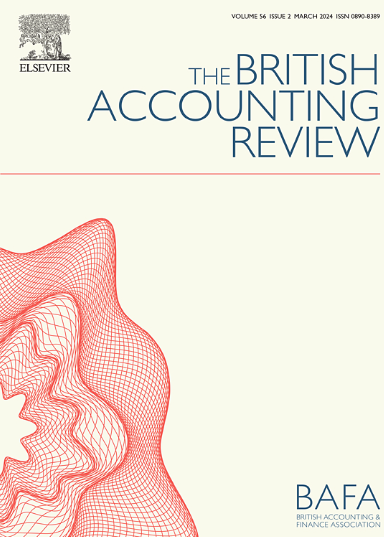家族企业起源与投资偏好:印记理论的实证研究
IF 5.5
3区 管理学
Q1 BUSINESS, FINANCE
引用次数: 0
摘要
中国的家族企业因其历史渊源而存在显著差异。基于起源的初始制度差异会影响投资行为,进而影响实体经济。本文研究了家族企业的起源如何影响其投资偏好。通过使用 2009-2021 年间中国家族企业的数据,我们发现与通过创业活动建立的家族企业相比,由国有企业改制的家族企业进行了更多的金融投资。企业受创始家族控制的时期和代际继承调节了改制型家族企业和创业型家族企业在投资偏好上的差异,而作为国有企业的时间则会加强这种差异。机制测试表明,与创业型家族企业相比,重组型家族企业参与的风险活动较少,这表明偏好印记导致了投资差异。这种差异不太可能是由创业精神、代理成本或资源禀赋的差异造成的。经过稳健性检验并克服了内生性问题后,我们的结果仍然是确凿的。总之,本研究表明,企业在创立阶段的风险倾向会对未来偏好产生长期影响。本文章由计算机程序翻译,如有差异,请以英文原文为准。
Family business origin and investment preference: An empirical study of imprinting theory
Family businesses in China differ acutely with respect to their historical origins. The initial institutional differences based on their origins affect investment behavior, which then impacts on the real economy. This paper investigates how the origins of family businesses affect their investment preferences. Using data on Chinese family firms for the period 2009–2021, we find that family businesses restructured by state-owned enterprises (SOEs) make more financial investments than those established through entrepreneurial activities. The period during which the business is under the control of the founding family and intergenerational succession moderates the differences in investment preferences between restructured and entrepreneurial family businesses, while the time of being as an SOE can strengthen the differences. Mechanism tests demonstrate that restructured family firms (RFFs) participate in less risky activities than entrepreneurial family firms (EFFs), suggesting that preference imprinting contributes to divergent investments. Such a divergence is unlikely to be driven by differences in entrepreneurship, agency costs, or resource endowments. Following robustness tests and after overcoming endogeneity problems, our results remain conclusive. Overall, this study demonstrates that a business’s risk propensity during its founding phase has a long-term impact on future preferences.
求助全文
通过发布文献求助,成功后即可免费获取论文全文。
去求助
来源期刊

British Accounting Review
BUSINESS, FINANCE-
CiteScore
8.60
自引率
3.90%
发文量
39
审稿时长
76 days
期刊介绍:
The British Accounting Review*is pleased to publish original scholarly papers across the whole spectrum of accounting and finance. The journal is eclectic and pluralistic and contributions are welcomed across a wide range of research methodologies (e.g. analytical, archival, experimental, survey and qualitative case methods) and topics (e.g. financial accounting, management accounting, finance and financial management, auditing, public sector accounting, social and environmental accounting; accounting education and accounting history), evidence from UK and non-UK sources are equally acceptable.
 求助内容:
求助内容: 应助结果提醒方式:
应助结果提醒方式:


